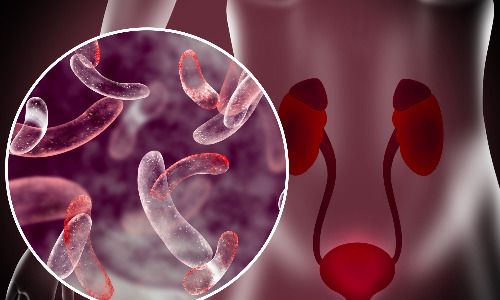
China: A recent study published in BMC Urology has added that patients with stone size < 40 mm or Grade 1 Guy's stone benefit the most from suctioning flexible ureteroscopy with intelligent pressure-control (SFUI) as they have higher chances of becoming stone free after the treatment. The SFUI display promising results concerning a better stone-free rate, and complications are rare.
Percutaneous nephrolithotomy (PCNL) and flexible ureteroscopy lithotripsy (FURL) are the most popular treatment options for managing renal stones. These procedures have a recommendation based on the kidney stone size.
In kidney stone size > 20 mm, PCNL is recommended, while for < 20 mm, FURL is recommended. This is mentioned in the American Urological Association guidelines.
Based on results and complications, studies mention higher stone-free rates with lesser complications in FURL. However, it may result in systemic inflammation and sepsis complications because it is easy to cause high renal pelvic pressure.
Recent data suggest that suctioning FURL is more suitable for patients with renal stones than traditional. It is highly acceptable in urological clinical practice.
SFUI is a type of suction FURL and provides high lithotripsy efficacy. This has a low complication rate also for managing upper urinary tract calculi.
Considering this and adding more data to this aspect, a study was conducted by a team of researchers led by Dr Xingjian Gao and Zedong Zhang from the Department of Urology at the General Hospital of Fujian Energy Group, Fujian Province, the People’s Republic of China to evaluate how safe and efficacious SFUI is for treating upper urinary tract calculi in a large cohort.
The key points of the study are:
• The study enrolled 278 patients (July 2020 – August 2021).
• The person had upper urinary tract calculi and underwent SFUI.
• The stone-free rate in one session after one month of SFUI treatment and complications were the outcomes measured in the study.
• The Clavien-Dindo classification scored these.
• The surgical time was 75 min, ranging from 60 min to 110 min.
• 80.65% and 82.26% were recorded One session and one-month SFRs, respectively.
• The patient with Guy’s stone score of Grade 1 had a size of < 40 mm and had a one-session SFR was ≧ 87%
• The Risk factors for unsuccessful stone-free in one session were related to the stone history and had an adjusted odds ratio aOR of 2.39.
• The stone size of 40–49 mm had aOR of 4.37.
• For Guy’s stone score ≧ Grade II, aOR was 3.54 while for Grade III, aOR was 10.95.
• 3.26 % was the recorded incidence of Clavien-Dindo grade II-III complication.
• The complication associated with Guy’s stone score III had aOR of 22.36 and a 95% Confidence Interval.
The researchers concluded SFUI is safe and efficacious in managing upper urinary tract calculi. Guy’s stone score of Grade I patients, after SFUI treatment, has a better chance of survival.
They said, “Our results show a significant negative correlation between Guy’s stone score and SFRs and complications. So, Guy’s stone score, a validated scoring system, could be used as a predictive factor of SFR and complications for patients who received SUFI.”
There are some limitations in this study, they added. Some of them are retrospective study with inherent limitations, lack of a control group, etc.
Further reading:
Gao, X., Zhang, Z., Li, X. et al. High stone-free rate immediately after suctioning flexible ureteroscopy with Intelligent pressure-control in treating upper urinary tract calculi. BMC Urol 22, 180 (2022). https://doi.org/10.1186/s12894-022-01126-0
